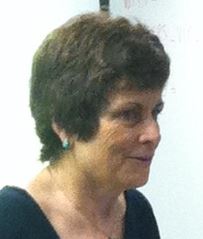
Port Adelaide, one of South Australia’s industrial heartlands, also has a high environmental value, a Flinders University planning conference will hear this week.
The real value of ecosystem services for biodiversity and people’s health and wellbeing was outlined at the start of the special four-day workshop at Flinders in Victoria Square.
Opening the workshop, the Chief Scientist of South Australia Dr Leanna Read said the future management of the Port River estuary and Barker Outlet coastal wetlands would benefit from scientists, state and local governments, industry and community groups working together.
The workshop forums are looking to develop progressive options to maximise positive ecosystem outcomes for key natural assets at Port Adelaide, taking into consideration the economic as well as the environmental and social benefits.
Among the issues were to create a balance between the need for urban development and economic infrastructure – such as the new Northern Connector transport route and new housing estates after saltfields close – and the social, cultural and biodiversity interests which includes the popular dolphin sanctuary and proposed Adelaide International Bird Sanctuary.
People in all cities including Adelaide can benefit greatly from caring for their natural resources, says keynote speaker Professor Robert Costanza, who chairs the Crawford School of Public Policy at the Australian National University.
“The initial estimates of ecosystem service values have surprised our expert team as they are exceptionally high for a relatively small region,” Professor Costanza said.
The value of the area north of Adelaide is conservatively estimated at $3 billion a year.
More than 60 academics, natural resource managers and others will discuss the characteristics and consequences of future management options for the area.
“Coastal restoration is a growing issue around the world and we can set a precedent in considering ecosystem services for future developments,” said Dr Harpinder Sandhu, from Flinders’ School of the Environment.

